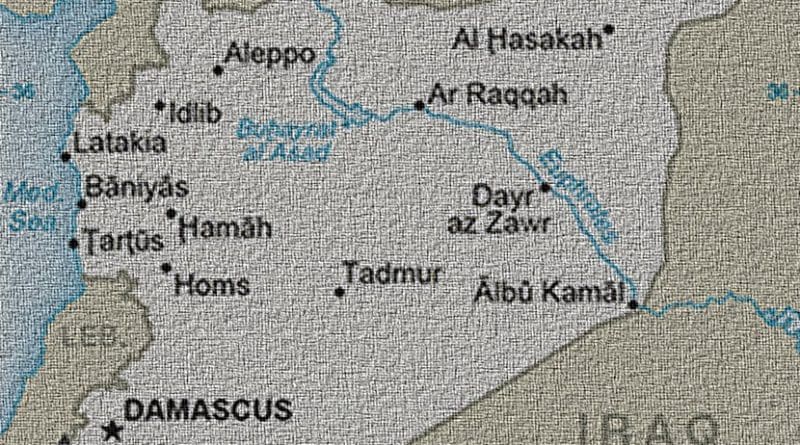Truce In Eastern Ghouta, Then What? – OpEd
As the world powers deliberated on the situation in Syria’s Ghouta behind closed doors at the UN Security Council, in the midst of a feverish anti-Damascus propaganda war overtaking the mainstream Western media, the question of a temporary ceasefire was inevitably linked to the long-term prospects for the war-torn district of Syria’s Capital, which has been the recipient of rebels shells almost on a daily basis, although little of that is reported in the biased Western media.
Called by Russia to give the Council an opportunity to engage in an in-depth discussion of the dire situation in Eastern Ghouta following days of relentless government aerial attack on the rebels strongholds, a 30-day truce is a likely outcome, barring a political impasse, in light of Russia’s opposition to a US-French resolution that placed the entire blame on Damascus. Given the humanitarian priorities, it is best to stop the blame game for now and create a ceasefire where the aids workers can reach out to the desperate civilians caught in the cross-fire.
Still, this could prove no more than a panacea bandaging a deep wound that can be healed only by resolving the present quagmire one way or another. As the last bastion of anti-government rebels dominated by the radical Salafi groups and al-Qaeda affiliates, Eastern Ghouta represents an intolerable military situation for the Syrian government that needs to be brought under control sooner or later, given the rebels’ proximity to Damascus. Yet, totally oblivious to Damascus’ legitimate concerns, the US and some European governments are dead set to rescue the failing rebels under siege even though most of them are on their terrorism lists.
A temporary truce at a time when the government forces have amassed in the area for a final offensive has the distinct possibility of saving the rebels from total annihilation and thus giving them a new lease of life, which in turn means lingering the Ghouta tragedy much longer, instead of shortcutting it. Already, as of last week, the Jihadists fighting in Eastern Ghouta have reorganized themselves by adopting a new name and a new front, Syrian Liberation Front, aimed at giving them legitimacy and saving them from the terrorism label. This maneuver should not blind the UN Security Council to the threats posed by these groups, which would turn the secular Syria back to the middle ages with their arcane ideologies.
UN’s envoy for Syria, Stefan De Mistura, has warned that Eastern Ghouta could turn into a “second Aleppo,” recalling the years of insane savagery that was perpetrated on that city, yet a point implicit in de Mistura’s comparison is that just like Aleppo, Eastern Ghouta could potentially be scene to an eventual peaceful evacuation of the rebels and the restoration of governmental authority, which has since then brought a modicum of life to the shattered city.
Instead of a narrow-focus on a ceasefire, the UN Security Council should adopt the lessons of Aleppo and take the necessary initiatives to achieve the desired result, for the area’s full achievement of its recently-declared status as a “de-escalation” zone. Today, Eastern Ghouta is anything but, partly thanks to the inter-rebel fighting and partly due to the government’s determination to liberate it from the clutches of terrorists backed by foreign governments, yet it is difficult to envision any other viable alternative but the Aleppo alternative. Otherwise, it is a sure bet that the humanitarian disaster gripping the suburb of Damascus will continue and even worsen in the weeks and months ahead.
Nevertheless, a temporary ceasefire is a welcome first step that, hopefully, can create the space for more meaningful UN discussions on how to telescope it to a durable peace, which can only come about when the (mostly foreign) terrorists are jettisoned from the Syrian territory and real progress in the on-going peace talks has been achieved.

